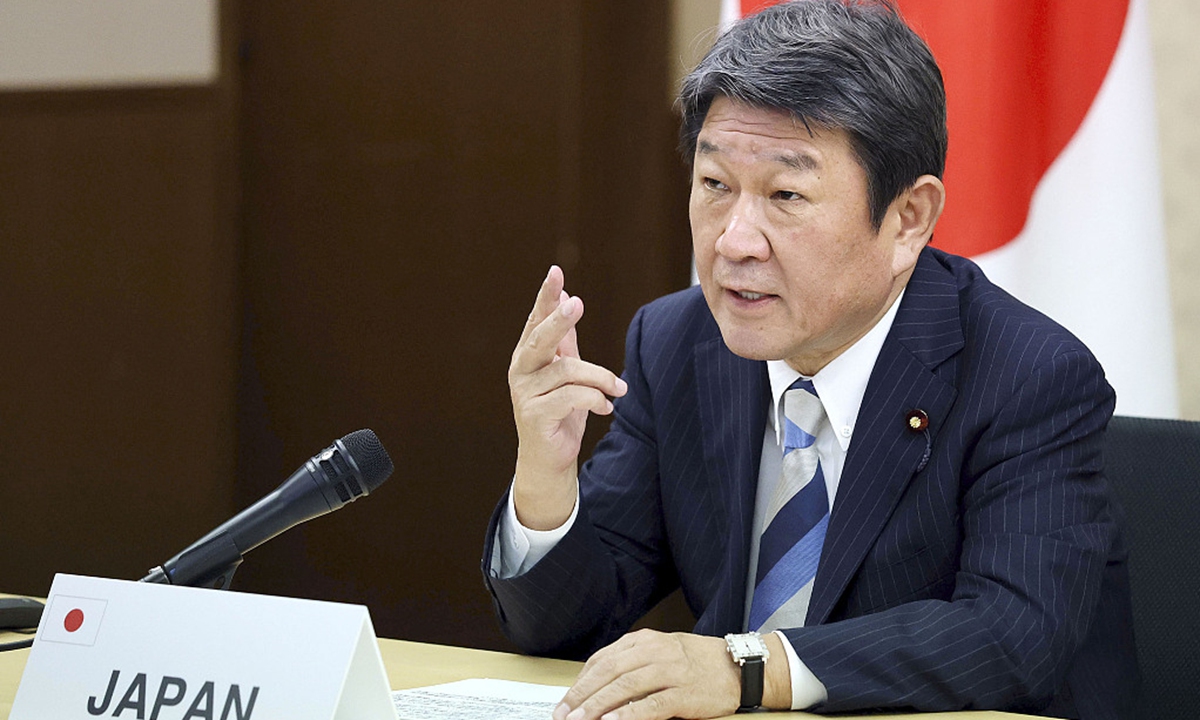Japan's dream for UN Security Council seat crushed by its historical mirages
By Chen Yang Source: Globaltimes.cn Published: 2020/9/26 13:09:00

Photo: CFP
Japanese Foreign Minister Toshimitsu Motegi on Tuesday underlined Japan's willingness to be a permanent member of the UN Security Council (UNSC) in a statement to mark the 75th anniversary of the founding of the UN. This is not the first time that Japan has expressed such will to join the UNSC. But if Japan cannot face its past history of aggression, it will never become a permanent member of the UNSC — no matter how hard it tries.
Japan joined the UN in 1956. As its post-WWII economy took off, Japan, with great enthusiasm, joined in the building and improvement of the UN system. It proactively maintained close ties with many UN agencies. For example, Japan officially engraved "UN-centralism" as one of the three principles of its foreign policy. It established United Nations University in Tokyo and has energetically hosted UN-related conferences. From the 1980s to 2018, Japan was been the second largest contributor to the UN budget. These all show Japan's care for UN affairs.
By showing such enthusiasm, Japan's main purpose has been to become a permanent member of the UNSC. Tokyo expressed such will as early as the 1970s, but it failed. It made a lot of efforts since, but this did not attract much attention until Japan formed the G4 nations together with Germany, India and Brazil. The four countries support each other's bids for permanent UNSC seats.
However, this has raised opposition from many countries. For example, Pakistan expressed its objections because of previous armed conflicts with India. Pakistan harbors concerns that India will abuse its power if it becomes a UNSC member. South Korea, North Korea and Russia all worry that Japan will further move toward the US, which may harm regional peace and security.
Japan has been obsessed with becoming a permanent member of the UNSC due to many practical interests. First, among the current permanent members, China is the only Asian country. Japan, as an Asian country too, undoubtedly wants to enhance its influence in this region if it is allowed to become a permanent member. Japan may be more confident in the competition with China. Second, in Japan-US alliance, the two countries are not on an equal footing. If Japan becomes a permanent member of the UNSC, it will be on equal footing with the US — and it will have more say. Third, Japan could cut off its past history of wars of aggression and step into a new era of diplomacy if it becomes a permanent member. This is particularly important for Japan, which has long aspired to become a normal country after WWII.
However, if Japan cannot face up to its past history of aggression and cannot sincerely apologize to the countries and people who suffered under its Imperial regime, then it cannot win the respect and trust of its Asian neighbors. Nor the whole world. It will not be qualified to be a permanent member of the UNSC. The UN is an intergovernmental international organization established by sovereign states after the end of WWII. The purpose of the UN includes maintaining peace worldwide and developing friendly relations between countries. China, the US, the UK, France and Russia, as five permanent members of the UNSC, are not only maintaining the fruits of victory in the WWII, as some critics say. Rather, they work for international order and hold mainstream historical perspectives of what happened during and after WWII. This is their responsibility to humanity.
Indeed, Japan has made positive contributions to the UN and the international community since the WWII. But it is also an indisputable fact that Japan has repeatedly made mistakes on historical issues. Some Japanese politicians have visited Yasukuni Shrine in a high-profile manner. Some right-wing Japanese forces have revised history textbooks and whitewashed the war of aggression. The Japanese government has hyped-up the so-called China threat and exaggerated regional tensions too. Japan has failed to effectively uphold and fulfill the purpose of the establishment of the UN. It has also failed to sincerely apologize and compensate the victims of wars and the people of countries it victimized. Japan today even rubs salt into their wounds. This makes people doubt: once Japan becomes a permanent member, can it follow the spirit of the UN and make positive contributions to the international community?
The UNSC is not a company's board of directors. Its membership is not determined by how much these countries contribute to the budget. If a country wants to play a responsible role in international affairs, it must have a clear understanding of its historical actions. If a country cannot even face its own history squarely, then how can it be responsible to the international community? How can it shoulder the mission of permanent member of the UNSC?
The author is a media professional and an observer of Japan issues. opinion@globaltimes.com.cn
RELATED ARTICLES:
Posted in: VIEWPOINT